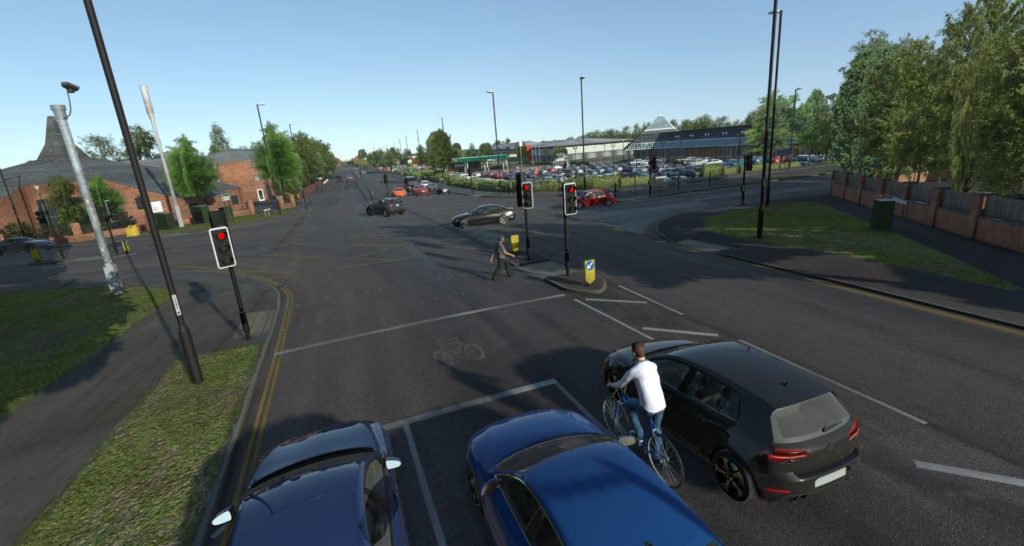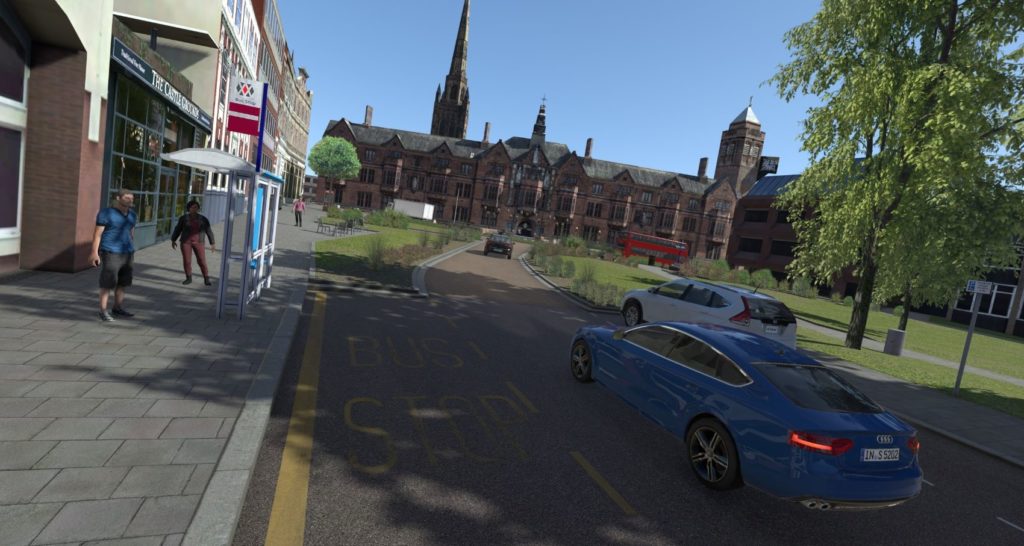rFpro has announced a collaboration with WMG, an academic department at the University of Warwick, to enhance the development of self-driving technology. As described by rFpro, the collaboration will allow the industry to correlate simulated testing of autonomous vehicles on public roads in the UK more accurately. One of the primary goals of the collaboration is to allow for simulation to become an integral and recognized part of the approval process.
“You cannot feasibly validate autonomous vehicles in the real world alone; there simply isn’t enough time or money. We must also exploit the expandability of simulation,” explained Matt Daley, rFpro Managing Director. “To do that we must trust the simulation results and so it is vital that we regularly check that they correlate with the real world. Our project with WMG enables the industry to do this on public roads for the first time in the UK.”
Midlands Future Mobility Testbed
To facilitate this, rFpro has created a digital twin of sections of the Midlands Future Mobility testbed. The testbed encompasses over 300 km of roads in Coventry, Birmingham, Solihull, and the wider West Midlands Region. The project is 5G ready and, with smart monitoring systems, vehicles will be connected via high-speed, high-capacity wireless infrastructure. WMG is already a partner of Midlands Future Mobility, which is funded by industrial partners and the UK Government’s Centre for Connected and Autonomous Vehicles as part of the Zenzic CAM Testbed UK initiative.
According to rFpro, while the model will enable the development of autonomous vehicles in simulation, WMG, alongside other Midlands Future Mobility partners, will provide testing and research support to allow customers to conduct more effective real-world correlation. rFpro says real-world routes make for better correlation because they already contain the infrastructure required for autonomous vehicle testing.

Areas & Sections of Interest
The Midlands Future Mobility testbed currently includes three areas that can be utilized to validate virtual test data on public roads.
- An area of Coventry town centre.
- The roadways in and around the University of Warwick campus.
- A section of Holyhead Road, one of the main thoroughfares in and out of Coventry.
WMG and rFpro say they want to extend the digital-twins to cover more of the Midlands Future Mobility route. However, for the time being, the three aforementioned areas are representative of common roads across the UK.
“We simulate, validate the results, exploit the simulation further, and then validate and exploit further again. Engineers have been using this technique for decades,” Daley said, elaborating more on how the same strategy is applied in racing.
“For example, the first thing a Formula 1 team will do on a Monday after a race weekend is drive the simulator to verify that the simulated vehicle feel and data match the real vehicle feel and data,” he continued. “If the simulator correlates to the real world, then they can quickly exploit the powers of their simulation before their next race. It is this same concept being used now to develop autonomous vehicles.”

New Upgrades
As part of the collaboration, WMG has upgraded its 3xD simulator and adopted rFpro’s software to support users as they move from simulation to real-world testing. The upgrades are meant to improve the vehicle’s realism, facilitate new emulation techniques for sensors and signals, and provide an overall approach for minimizing the time and effort spent.
“This is a big step towards the approval and adoption of autonomous vehicles,” Daley said.


